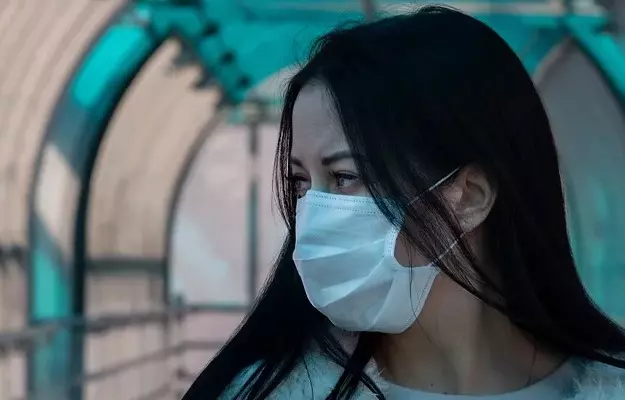The global outbreak of COVID-19, caused by a novel strain of coronavirus since December last year, has led to over a million positive cases and over 58,000 reported to have died of the disease. Countries in Europe have been most affected by this pandemic, with over 10,000 casualties reported from Italy and Spain, and the count of dead bodies constantly rising in France as well. The United States of America has had the highest number of positive cases, with over 2 lakh people testing positive in the country alone.
While the respiratory disease caused with flu-like symptoms was initially reported to have been caused by a human coming in contact with an animal, the disease spread like wildfire through human-to-human transmission thereafter. Droplets released while speaking, coughing or sneezing from an infected person has led to this massive outbreak that has prompted countries all over the world to go into nationwide lockdowns.
Although India has had a lesser number of infections with more than 2500 positive cases and as many as 80 deaths (according to Worldometers), there has been a sharp rise in the numbers over the past week.
The primary source of infection remains human-to-human transmission while being in close proximity, but there are risks attached to surface transmission as well. Meanwhile, there are yet more theories about how the virus can jump from one infected person to another, one of which is transmission through dead bodies.
Read more: COVID-19 Myths and the Truth About Them
Dead body management during COVID-19
While there hasn’t been enough research done on whether the SARS-CoV-2 virus can survive in corpses and risk health workers handling dead bodies to get infected, the World Health Organization as well as governments of countries all over the world have issued directives in the management of the rising count of dead bodies.
The guidelines cover a variety of issues, including the management of bodies in hospitals, performing autopsies on them as well as instructions for the proper burial or cremation.
An imminent risk hasn’t been attached to the new coronavirus infecting anyone from a dead body, and the WHO has maintained that most agents such as viruses do not survive long in the human body after death. Workers handling dead bodies, however, remain at risk of contracting certain underlying diseases such as tuberculosis, cholera or haemorrhagic fevers such as Ebola, or certain blood-borne viruses.
Read more: COVID-19: Global practices for proper disposal of dead bodies
Do dead bodies pose a threat of infection?
While there isn’t enough evidence supporting this claim, health officials as well as the WHO have maintained that COVID-19 cannot be transmitted through the air from a dead body.
"The main driver of transmission of COVID-19 is through droplets. There is unlikely to be an increased risk of coronavirus infection from a dead body to health workers or family members who follow standard precautions while handling the body," a health ministry official from the Government of India has been quoted as saying. "Only the lungs of dead COVID-19 patients, if handled during an autopsy, can be infectious."
Even the WHO has supported the claim that only the lungs of the infected person can be a source of infection after death, but cadavers do not pose a risk of transferring the infection onto a living person. However, it goes on to add that health workers constantly handling dead bodies remain at risk of contracting other underlying infections the deceased persons may have had, such as TB, hepatitis B and hepatitis C, HIV or gastrointestinal infections.
Read more: What happens to the lungs when you have COVID-19?
Takeaway
The World Health Organization as well as the Government of India have given out strict guidelines for the management of dead bodies on a large scale to dispel any notion of contracting the infection, especially for the health workers who handle corpses on a daily basis.
Dead bodies do not pose a threat of transmission of the SARS-CoV-2 virus, but health workers are expected to follow the guidelines to the letter in order to minimize the chances of contracting any infection whatsoever, especially when the death toll is on a constant rise.
Medicines / Products that contain Can COVID-19 be transmitted through dead bodies?
- Proctosedyl BD Cream - ₹108
- Anovate Cream - ₹140
- Pilo GO Cream - ₹80
- Covifor Injection - ₹3780
- Fabiflu 200 Mg Tablet - ₹1292
- Fabiflu 400 Tablet - ₹856
- Fabiflu (Favipiravir) 400 Mg Tablet - ₹1224
- Fabiflu (Favipiravir) 200 Mg Tablet - ₹1292
- Remdesivir Injection - ₹10500
- Molusafe Capsule - ₹457
- Movfor 200 Mg Capsule - ₹2490
- Molflu 200 Mg Capsule - ₹1400
- Molulife 200 Capsule - ₹1399
- Cipmolnu 200 Mg Capsule - ₹2000
- Molxvir 200 Mg Capsule - ₹1520
- Immunocin Alpha Plus 1.6mg Injection - ₹5998
- Alzumab Injection - ₹8229
- Imualfa 1.6mg Injection 1ml - ₹2628
- Molnutor 200 Mg Capsule - ₹2000
- Sotrovimab Injection - ₹165000
- Nirmatrelvir - ₹5000
- Molnupiravir 200 Mg Capsule - ₹1400
- Covihalt 200 Tablet - ₹465
- Ciplenza Tablet - ₹646
- Itolizumab Injection - ₹8220
















